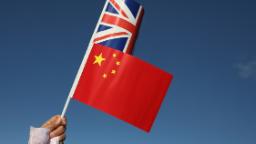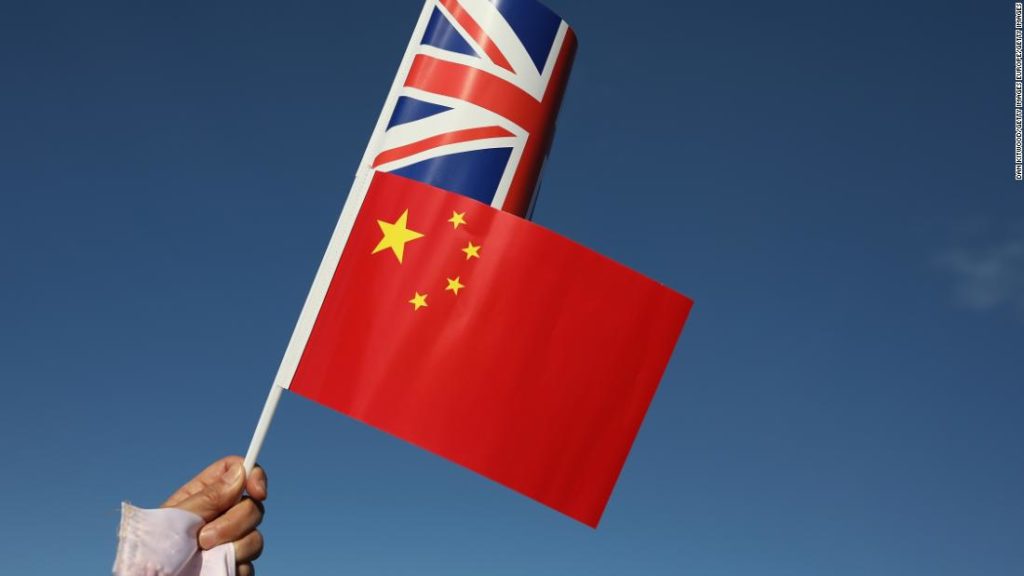
In a statement Friday, China’s foreign ministry said the UK had “imposed unilateral sanctions on relevant Chinese individuals and entity, citing the so-called human rights issues in Xinjiang.”
“This move, based on nothing but lies and disinformation, flagrantly breaches international law and basic norms governing international relations, grossly interferes in China’s internal affairs, and severely undermines China-UK relations.”
Those sanctioned include five members of Parliament — Tom Tugendhat, Iain Duncan Smith, Neil O’Brien, Tim Loughton and Nusrat Ghani — and two members of the House of Lords, David Alton and Helena Kennedy, as well as academic Joanne Smith Finley and barrister Geoffrey Nice.
“China is firmly determined to safeguard its national sovereignty, security and development interests, and warns the UK side not go further down the wrong path,” the Chinese foreign ministry statement said. “Otherwise, China will resolutely make further reactions.”
In response, British Foreign Minister Dominic Raab said “it speaks volumes that, while the UK joins the international community in sanctioning those responsible for human rights abuses, the Chinese government sanctions its critics.”
Those individuals concerned and their immediate family members are prohibited from entering mainland China, Hong Kong and Macao. Their property in China will be frozen, and Chinese citizens and institutions will be prohibited from doing business with them, according to the foreign ministry statement.
The UK’s ambassador to China has also been summoned by Beijing, to lodge what it described as “solemn representations, expressing firm opposition and strong condemnation.”
While relations between Beijing and London have suffered as a result of the ongoing crackdown in Hong Kong, which the UK has suggested breaches a historic agreement with China, the new sanctions could send them to new lows.
‘Will not be silenced’
Reacting to the news on Twitter, Iain Duncan Smith, an MP and former leader of the Conservative Party, said the sanctions against him were a “badge of honour.”
“It’s our duty to call out the Chinese (government’s) human rights abuse in Hong Kong (and) the genocide of the Uyghurs,” Duncan Smith wrote. “Those of us who live free lives under the rule of law must speak for those who have no voice.”
Smith Finley, the British academic, said she had been sanctioned “for speaking the truth” about Xinjiang “and for having a conscience.”
“I have no regrets for speaking out, and I will not be silenced,” she tweeted.
“These actions demonstrate our ongoing commitment to working multilaterally to advance respect for human rights and shining a light on those in the (Chinese) government and (Communist Party) responsible for these atrocities,” US Secretary of State Antony Blinken said following the move.
Speaking Monday, Chinese foreign ministry spokeswoman Hua Chunying said “for a long period, the US and the West wantonly interfered in other countries’ domestic affairs by using democracy and human rights as an excuse.”
In a statement, however, David Sassoli, President of the European Parliament, said China’s sanctioning of members of the European Parliament was “unacceptable and will have consequences.”
You may also like
-
Afghanistan: Civilian casualties hit record high amid US withdrawal, UN says
-
How Taiwan is trying to defend against a cyber ‘World War III’
-
Pandemic travel news this week: Quarantine escapes and airplane disguises
-
Why would anyone trust Brexit Britain again?
-
Black fungus: A second crisis is killing survivors of India’s worst Covid wave

